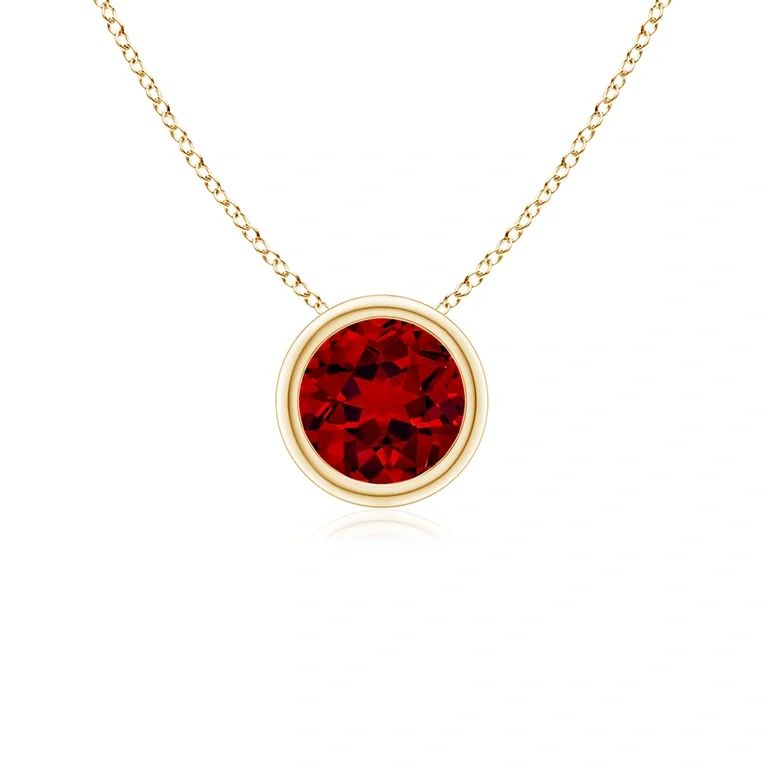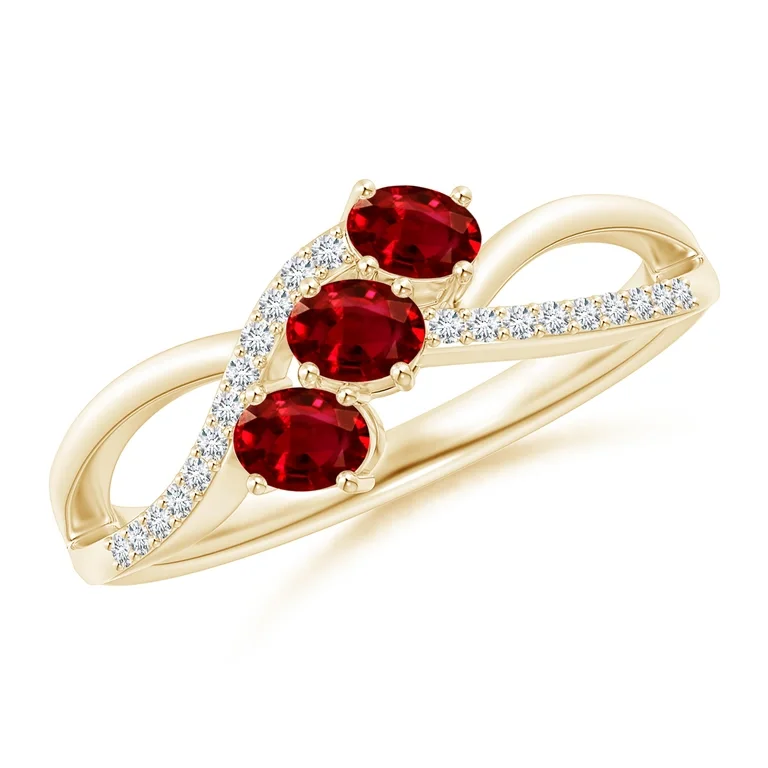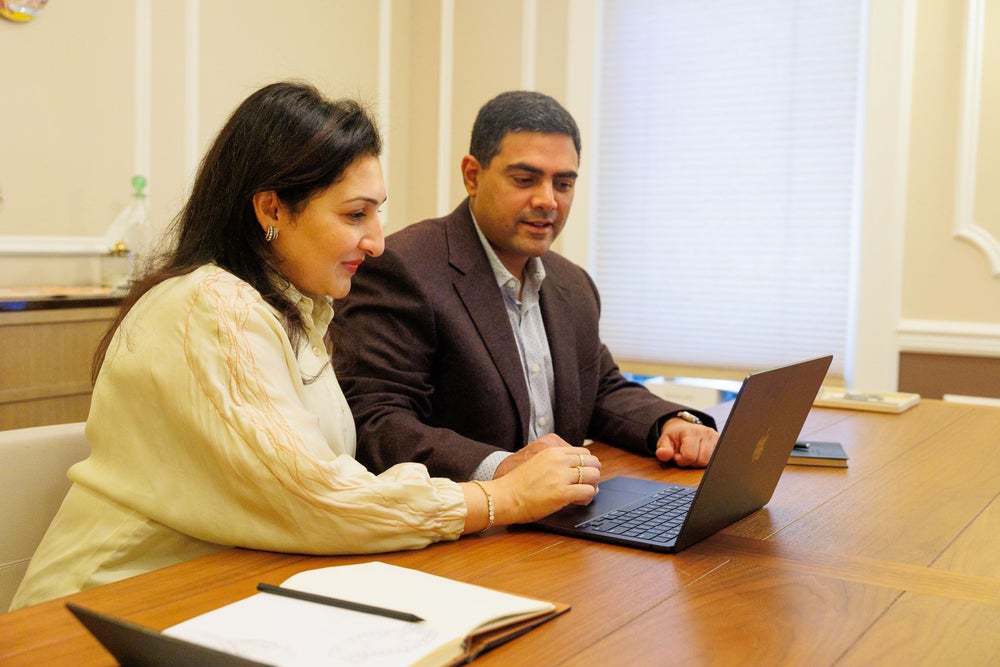Ankur and Aditi Daga, the married co-founders of DTC fine jewelry company Angara, “clicked immediately” when their families introduced them at age 22. A passion for colored gemstones was just one of the things they had in common.
Image Credit: Courtesy of Angara. Aditi and Ankur Daga.
With family ties to the jewelry industry in India on both sides, the couple had grown to appreciate the level of customization that so often went into each piece and that the colorless diamonds popularized by De Beers’ 1947 campaign weren’t the default. They wanted to bring a bespoke approach to the U.S., where retail stores typically sold jewelry straight from the shelf.
The Dagas believed consumers were ready for more color in their lives but worried that investors might think otherwise. So, after finishing their graduate studies at Harvard, they launched Angara in 2006 with a focus on diamonds. However, it was challenging to compete in the diamond-saturated market, and “with revenue but not profitability,” the co-founders returned to their original idea in 2011: customizable colored gemstones.
Related: This Couple Ignored the Common Wisdom of the Jewelry Industry, And Started Making $100 Million a Year
The Dagas intended to use technology to provide personalization at scale. Angara offered “good,” “better,” “best” and “heirloom” options for its designs and compressed a process that could take six months into one finished in 24 to 72 hours. Finalizing their method took about seven years, but it was a game-changer.
“That’s when things started to take off,” Ankur says. “Our conversion rate shot up because whatever the customer wanted, there was a permutation that would work. We went to cash flow positive within three months.”

Image Credit: Courtesy of Angara
Now, Angara boasts 350 employees, 10 global offices, approximately $100 million annual revenue and is on track to be a billion-dollar company within five years.
Related: You Want to Grow Your Business — But Do You Have a Plan? Here Are The Proactive Steps You Need to Take to Succeed.
Entrepreneur sat down with the co-founders to learn more about how they built a successful partnership and strong sales — and the role that their “30-minute” and “$10,000” rules play.
The 30-minute rule
When the Dagas started the business, they had a new baby and no shortage of business-related responsibilities. One of their professors at Harvard had actually recommended married couples never work together because of the potential strain caused by the 24/7 blurring of personal and professional lines.
Of course, juggling so many tasks as parents, spouses and co-founders meant the business could be a constant topic of conversation — there was always more to do or solve, after all. That’s why the Dagas decided to implement a “30-minute rule”: Outside of working hours, they wouldn’t discuss the business for more than half an hour.
Related: These Married Co-Founders Started a Business With a Name ‘Nobody Could Pronounce’ — Then Bootstrapped It From Their Garage to 8-Figure Revenue
“It’s a consecutive 30 minutes,” Ankur explains. “So, during the day, we only talk about work max 30 minutes, and now sometimes a lot less also. All of the other hours [we] can talk about anything, which is far more healthy.”
The rule “really kept the sanity at home,” Aditi says — and helped them be present with each other when they were off the clock.
“If we’re together and thinking about work, it really prohibits us from being present [and enjoying] what we’re there for together,” Aditi explains. “We could potentially talk about work all the time, but there are so many other facets of life.”

Image Credit: Courtesy of Angara
The $10,000 rule
Good ideas are a must for businesses looking to innovate and grow, but allocating the financial resources to implement them can be fraught, especially when there’s a difference of opinion.
That’s why, in Angara’s early days, the Dagas devised a “$10,000 rule”: the maximum amount of money that they could spend testing any one idea.
“Any company could set any budget,” Aditi says, “but that really helped us pivot to find the right model. We would devote $10,000 per idea, and whether it was mine or Ankur’s or another team member’s, we gave it equal time and budget, and if it didn’t work, it took that emotional attachment away from the idea.”
Related: 5 Signs You’re Too Emotional to Decide What’s Best for Your Business
Removing the emotional charge from decisions makes it easier to change course when necessary and prioritize growth, Ankur adds.
“Depersonalizing decisions,” he explains. “We [might] try something, and it doesn’t work, but everything for us is trial and error. The nice thing about ecommerce is you can pivot very quickly. So, you can do a small test. If it works, you can scale it very quickly. And if it doesn’t work, shelve it.”
It’s also important not to blame each other or themselves for an idea that doesn’t pan out, the couple notes.

Image Credit: Courtesy of Angara
Leaning into complementary skill sets
In the early days, the co-founders “put on six hats each,” and the day-to-day shared wins and disappointments helped them understand the other person’s perspective — because they had all the same context.

Image Credit: Courtesy of Angara
However, knowing when to divide responsibilities and play to each other’s unique strengths also contributes to Angara’s consistent success, the Dagas have found.
Aditi spearheads merchandising and design and focuses on customer touchpoints and experience. For example, she’s committed to giving customers beautiful packaging, learning from her own “lackluster” experiences with high-end jewelry retailers that skimp on presentation. A delivery from Angara features a branded shopping bag and lighted box — and even emits a fragrance that changes with the season.
Related: Customer Experience Will Determine the Success of Your Company
Ankur takes the lead on analytics and numbers, ensuring the company hits its targets.
”Staying out of each other’s ways is very key,” Aditi says. “Because otherwise, if I get more input from a different department that’s not as focused on [customer experience], it makes me question my own decisions versus going with my gut. And vice versa.”
Now, as the couple looks to Angara’s vibrant future, they’re excited to continue strengthening their community and commitment to color and for AI advancements that will lead to even more opportunities for streamlined personalization: Imagine a customer describing a one-of-a-kind design and an AI system bringing it to life, aesthetically and technically, in a product delivered straight to their door.
Read the full article here









